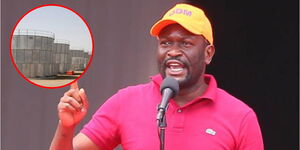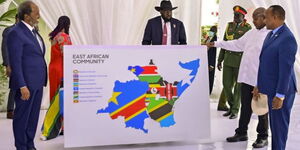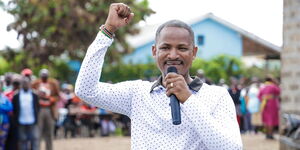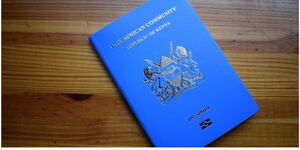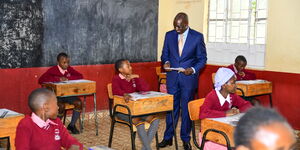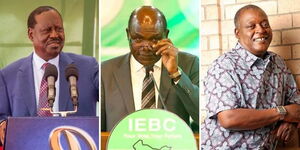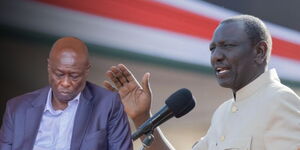Leaders of the G7 have signalled a shift in the global financial landscape, just hours after President William Ruto's impassioned plea for reform to lift many African nations from crippling debt.
This move aims to address long-standing imbalances that have often left African countries with limited influence over decisions that impact their economic futures.
On Saturday, June 15, the G7 issued a communique endorsing the establishment of a third chair for sub-Saharan Africa at the International Monetary Fund (IMF) Executive Board, slated for November. This significant step is expected to enhance the representation and voice of African nations within the IMF, providing them with greater influence in shaping policies that affect their economies.
"We endorse African countries' call for greater voice in international bodies and welcome the AU's participation in the G20 as a permanent member, and the creation of a third Chair for sub-Saharan Africa at the IMF Executive Board in November," the communique stated.
This announcement is a significant victory for African nations that rely heavily on IMF loans for essential infrastructure projects.
For years, countries like Kenya have received billions in financial support from the IMF, often accompanied by stringent economic and fiscal reform conditions.
The new chair at the IMF could alleviate some of the burdens by ensuring African voices are better represented in critical policy decisions.
The IMF had previously indicated plans to increase Africa's representation on its board. However, this initiative required backing from the G7, given their substantial influence within the IMF.
The G7, comprised of Canada, France, Germany, Italy, Japan, the United Kingdom, and the United States, along with the European Union, plays a pivotal role in global economic governance.
Increasing Africa's representation in the IMF and World Bank directorates is seen as a vital step in addressing the perceived imbalance of power.
Currently, 46 sub-Saharan African countries are represented by just two executive directors at the IMF. This limited representation is particularly concerning given that African nations are some of the most intensive users of IMF services.
Analysts have long advocated for the creation of a third African chair on the IMF board to improve representation. Such a move would reduce the workload on the existing directors, allowing them to more effectively champion African concerns. The World Bank has already set a precedent with three African chairs on its board, and the IMF's alignment with this model is a logical progression.
Africa's public debt reached $1.8 trillion (about Ksh232.6 trillion) in 2022, a staggering 183 per cent increase from 2010, according to United Nations data.
This rapid debt growth has far outpaced economic output, placing many African countries at heightened risk of over-indebtedness. Nations like Ghana, Zambia, Malawi, and Chad are among those grappling with severe debt challenges, some even defaulting on their foreign debt.
During the G7 Summit in Apulia, Italy, President Ruto urged the G7 to champion reforms in the multilateral financial system. He called for the Global South, particularly Africa, to gain access to concessional, long-term, and flexible financing, along with a more substantial role in decision-making processes.
Ruto emphasised the need for a fairer global financial system, stating, "No global institution can claim to champion humanity's universal values in 2024 while perpetuating marginalisation of 1.4 billion people from Africa's 54 nations."
He called for equitable financing and a robust partnership aimed at bridging Africa's significant infrastructure gaps.
In response, the G7 committed to reinforcing equitable cooperation with African countries and regional organisations. "We will reinforce mutually beneficial and equitable cooperation with African countries and regional organizations. While assuring African countries our continued financial support, we will enhance the coordination and effectiveness of G7 cooperation resources," the G7 stated.



